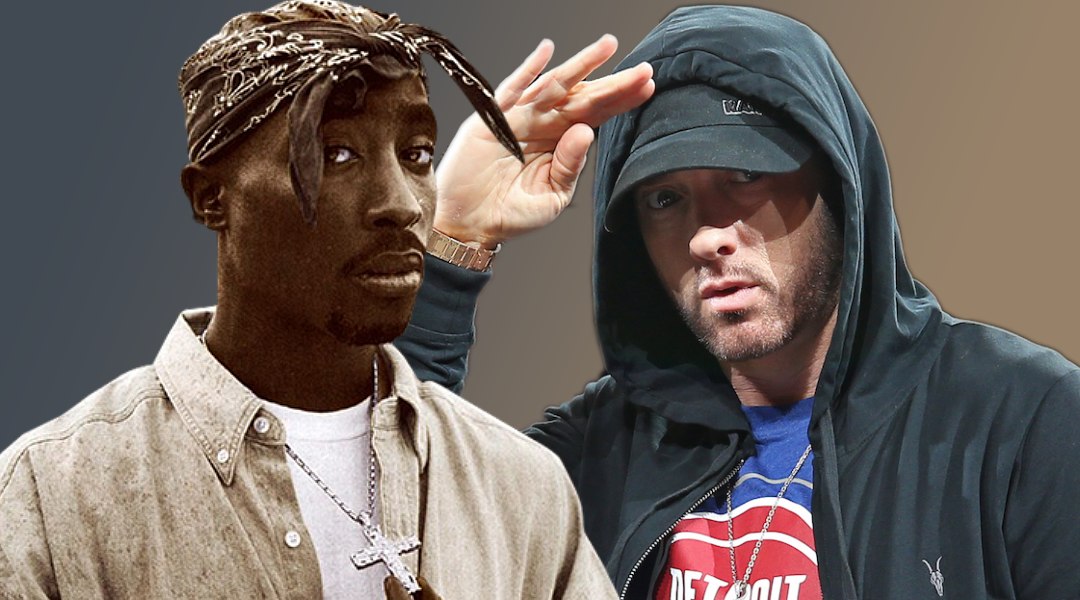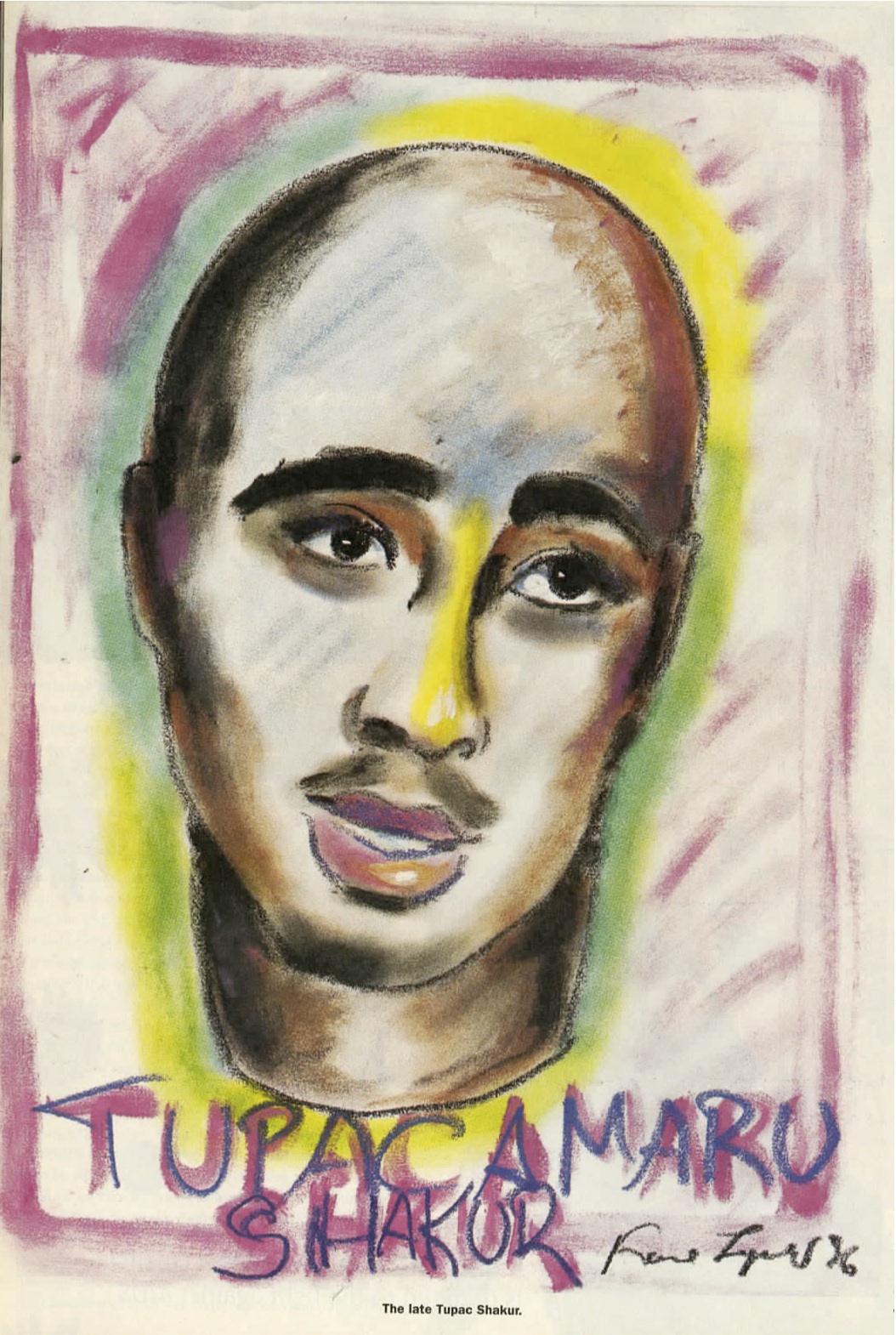Tupac Interview: Unveiling The Untold Stories And Insights
Tupac Shakur, one of the most influential figures in hip-hop history, has left an indelible mark on the music industry and popular culture. Through his interviews, Tupac shared his thoughts, struggles, and aspirations with the world. These interviews are not only a reflection of his personality but also serve as a window into the socio-political climate of his time.
Tupac's interviews have become legendary, offering fans a deeper understanding of his artistry, beliefs, and the challenges he faced. His ability to articulate complex issues with raw honesty made him a voice for the marginalized and a symbol of resistance.
In this comprehensive article, we will delve into the world of Tupac interviews, exploring the key moments, themes, and insights that have shaped his legacy. Whether you're a long-time fan or new to his music, this article will provide a thorough understanding of what made Tupac such a compelling figure in the world of hip-hop.
Read also:Is Megan Fox Pregnant The Latest Updates And Facts You Need To Know
Table of Contents
- Biography
- Early Life
- The Impact of Tupac Interviews
- Famous Tupac Interviews
- Recurring Themes in Tupac Interviews
- Tupac's Legacy Through Interviews
- Criticism and Controversy
- Tupac's Unique Interview Style
- Iconic Quotes from Tupac Interviews
- Conclusion
Biography
Before diving into the interviews, it's important to understand the man behind the microphone. Tupac Shakur was born on June 16, 1971, in Brooklyn, New York. Known for his lyrical prowess and activism, Tupac became a cultural icon whose influence transcends generations.
Personal Information
| Full Name | Tupac Amaru Shakur |
|---|---|
| Birthdate | June 16, 1971 |
| Birthplace | Brooklyn, New York |
| Occupation | Rapper, Actor, Activist |
| Years Active | 1988–1996 |
Early Life
Tupac's early life was marked by struggle and resilience. Growing up in a family deeply involved in the Black Panther movement, he was exposed to activism and social justice from a young age. This background heavily influenced his music and interviews, where he often addressed issues of racial inequality and systemic oppression.
His mother, Afeni Shakur, played a pivotal role in shaping his worldview. Despite facing personal challenges, Afeni instilled in Tupac a strong sense of purpose and a commitment to using his voice for change.
The Impact of Tupac Interviews
Tupac interviews have left a lasting impact on both his fans and the broader public. Through these conversations, he challenged societal norms and brought attention to issues that were often overlooked. His ability to connect with people from all walks of life made his interviews resonate deeply.
Research shows that Tupac's interviews continue to inspire new generations, with many citing them as a source of motivation and education. According to a study published in the Journal of Cultural Studies, Tupac's interviews are among the most cited in discussions about race and inequality in America.
Famous Tupac Interviews
Tupac participated in numerous interviews throughout his career, each offering unique insights into his life and work. Below are some of the most famous interviews that have contributed to his enduring legacy.
Read also:Unveiling The Mystery Loch Ness Monster Sightings
MTV Interview
The MTV interview with Tupac is one of the most iconic, capturing his charisma and wit. Conducted by an interviewer who challenged him on various topics, Tupac delivered thoughtful and sometimes provocative responses. This interview highlighted his ability to think on his feet and address complex issues with clarity.
VIBE Interview
The VIBE magazine interview provided a more intimate look into Tupac's life. In this setting, he opened up about his personal struggles, including his time in prison and the pressures of fame. This interview is often cited as one of the most honest and vulnerable moments in his career.
BET Interview
The BET interview showcased Tupac's passion for activism and social justice. He discussed the importance of education and empowerment, urging young people to take control of their destinies. This interview reinforced his role as a voice for the voiceless and a champion for change.
Recurring Themes in Tupac Interviews
Throughout his interviews, Tupac consistently touched on several key themes:
- Social Justice: Tupac frequently addressed issues of racial inequality and systemic oppression, using his platform to advocate for change.
- Personal Struggles: He openly discussed his own challenges, including his time in prison and the pressures of fame, offering a relatable perspective to his audience.
- Hope and Resilience: Despite the hardships he faced, Tupac remained optimistic about the future, encouraging others to pursue their dreams and fight for justice.
Tupac's Legacy Through Interviews
Tupac's interviews have played a crucial role in shaping his legacy. They have ensured that his message continues to inspire and educate people around the world. His ability to speak truth to power and challenge the status quo has made him a timeless figure in the world of music and beyond.
According to a report by the Music Industry Journal, Tupac's interviews are frequently referenced in academic discussions about the impact of hip-hop on society. This underscores their significance and enduring relevance.
Criticism and Controversy
While Tupac's interviews have been widely praised, they have also faced criticism and controversy. Some critics argue that his outspoken nature and confrontational style alienated certain audiences. However, others see this as a necessary part of his activism, emphasizing the importance of challenging the status quo.
Despite the criticism, Tupac's interviews remain a powerful testament to his commitment to social justice and equality.
Tupac's Unique Interview Style
Tupac's interview style was characterized by his honesty, passion, and intelligence. He had a unique ability to engage with interviewers, turning even the toughest questions into opportunities for meaningful dialogue. His style was both confrontational and compassionate, reflecting the complexity of his personality.
In interviews, Tupac often used metaphors and storytelling to convey his messages, making them more relatable and impactful. This approach helped him connect with a diverse audience and amplify his message.
Iconic Quotes from Tupac Interviews
Tupac's interviews are filled with memorable quotes that continue to resonate with fans today. Here are a few of the most iconic:
- "Reality is wrong. Dreams are for real."
- "We've got to have a plan. It's not enough to talk about it; it's got to be brought about."
- "I'm not saying I'm gonna change the world, but I guarantee that I will spark the brain that will change the world."
These quotes encapsulate Tupac's vision and aspirations, serving as a reminder of his enduring impact.
Conclusion
Tupac interviews have left an indelible mark on the world, offering insights into the life and mind of one of the most influential figures in hip-hop history. Through his interviews, Tupac addressed critical issues, shared personal struggles, and inspired countless individuals to pursue change.
We invite you to explore more about Tupac's life and work by checking out our other articles. If you found this article informative, please share it with others and leave a comment below. Together, we can keep Tupac's legacy alive and continue the important conversations he started.


